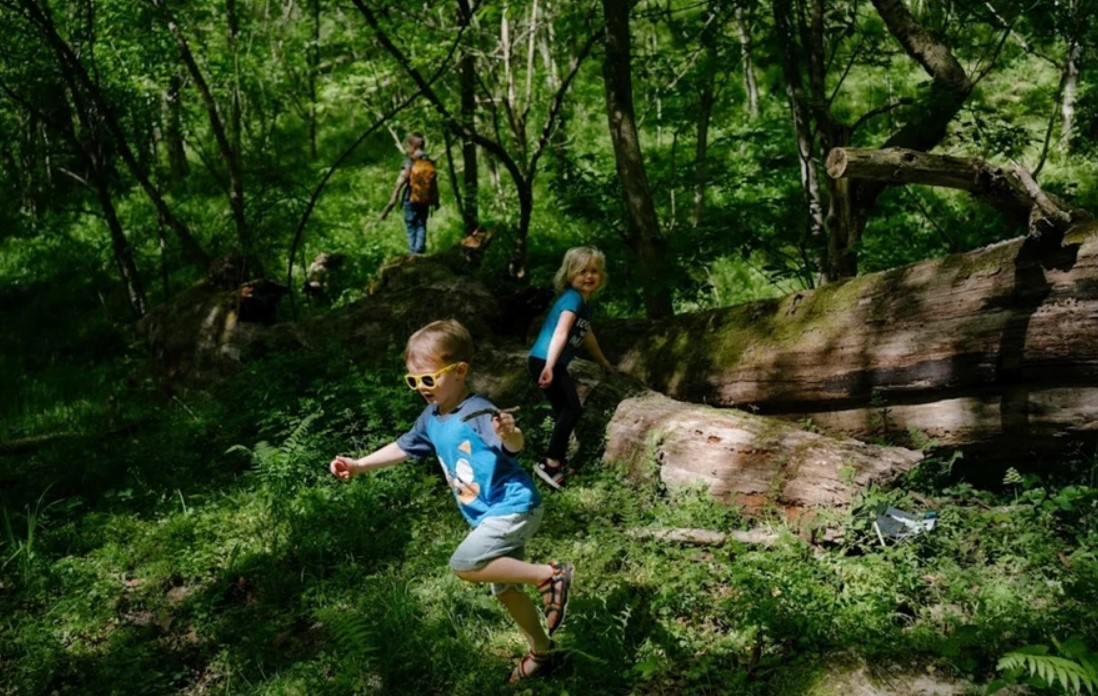In addition to expansive education choice policies, the Mountain State has seen the growth of microschools, learning pods, homeschooling collaboratives, and low-cost private schools that are meeting parent demand for more education possibilities.
West Virginia has experienced a dramatic expansion of educational freedom over the past year, from the state legislature passing a near-universal Education Savings Account (ESA) program, called the Hope Scholarship, to loosening state compulsory school attendance laws for participants of learning pods and microschools.
The Hope Scholarship program, which several thousand families were planning on using for the first time this upcoming academic year to help them exit an assigned district school, is currently ensnared in a legal battle, but the enthusiasm for greater education options and the embrace of innovative K-12 learning models continues unabated.
Once hovering near the bottom of states for education choice and innovation, West Virginia has soared close to the top. In addition to expansive education choice policies, the state has seen the growth of microschools, learning pods, homeschooling collaboratives, and low-cost private schools that are meeting parent demand for more education possibilities.
“We’re seeing traditional homeschool co-ops and even private school leaders transition into learning pods, microschools, and hybrids with more of a focus on flexibility because they see the need and realize they are the ones with the expertise to meet the demand,” said Jamie Buckland, a West Virginia homeschooling mom and advocate with West Virginia Families United for Education (WVFUE). “This is opening access to children whose parents have always been reliant on public school because they weren’t positioned to offer a sustainable alternative on their own.”
The education entrepreneurs who are creating these models are diverse in their educational philosophies, building a dynamic landscape of learning options from which families can choose. One of these visionary West Virginia education entrepreneurs is Katie Switzer, a mom of four young children and founder of the Monongalia Family Forest School which offers weekly, nature-based education for homeschoolers, as well as programming for the broader community.
A mechanical engineer who spent 10 years in industry before motherhood working for companies such as SpaceX, Switzer launched her forest school last fall and it quickly doubled in size. Her program also recently won a microgrant from the VELA Education Fund, a philanthropic non-profit whose goal is to provide startup and expansion support for non-traditional K-12 learning models.
“I want to take this money and spread family forest school everywhere,” Switzer told me on this week’s episode of the LiberatED podcast. “I know that there are other people out there that don’t have access to forest school for their kids, or there are teachers that just want to do something different.”
As she scales her own forest school program, Switzer is connecting with and supporting aspiring education entrepreneurs across the country who are interested in developing a similar program. “Every city should have a family forest school so that kids that are young can build these skills and confidence outdoors right away,” said Switzer.
The education turmoil of the past two years has led parents to explore other learning options for their children, while prompting policymakers to initiate legislation that enables education funding to follow students rather than school systems. It has also activated education entrepreneurship, as parents and teachers create innovative, low-cost learning models, like forest schools, in their own communities.
As an advocate of education choice and entrepreneurship in West Virginia, WVFUE’s Buckland is optimistic about the future of learning in the Mountain State and the proliferation of creative models such as Switzer’s. “Affordable alternatives have been something to only dream of,” she said, “but investing in the talents, creativity, and culture of Appalachian edupreneurs is showing parents that learning isn’t bound by brick and mortar.”
Listen to the weekly LiberatED Podcast on Apple, Spotify, Google, and Stitcher, or watch on YouTube, and sign up for Kerry’s weekly LiberatED email newsletter to stay up-to-date on educational news and trends from a free-market perspective.
Source: FEE
Kerry McDonald is a Senior Education Fellow at FEE and host of the weekly LiberatED podcast. She is also the author of Unschooled: Raising Curious, Well-Educated Children Outside the Conventional Classroom (Chicago Review Press, 2019), an adjunct scholar at the Cato Institute, and a regular Forbes contributor. Kerry has a B.A. in economics from Bowdoin College and an M.Ed. in education policy from Harvard University. She lives in Cambridge, Massachusetts with her husband and four children. You can sign up for her weekly newsletter on parenting and education here.
